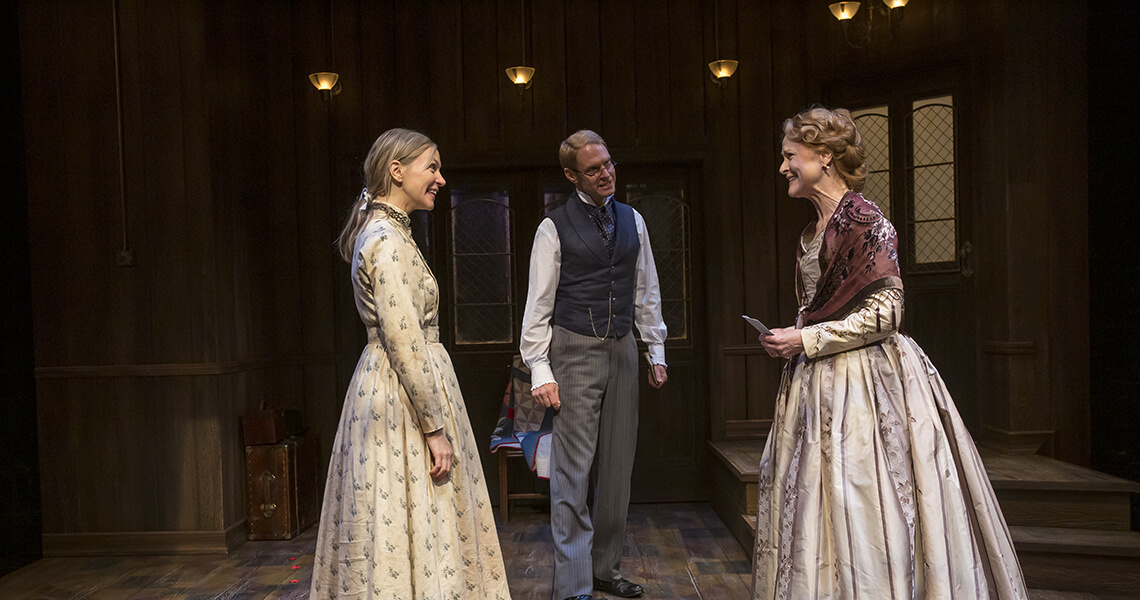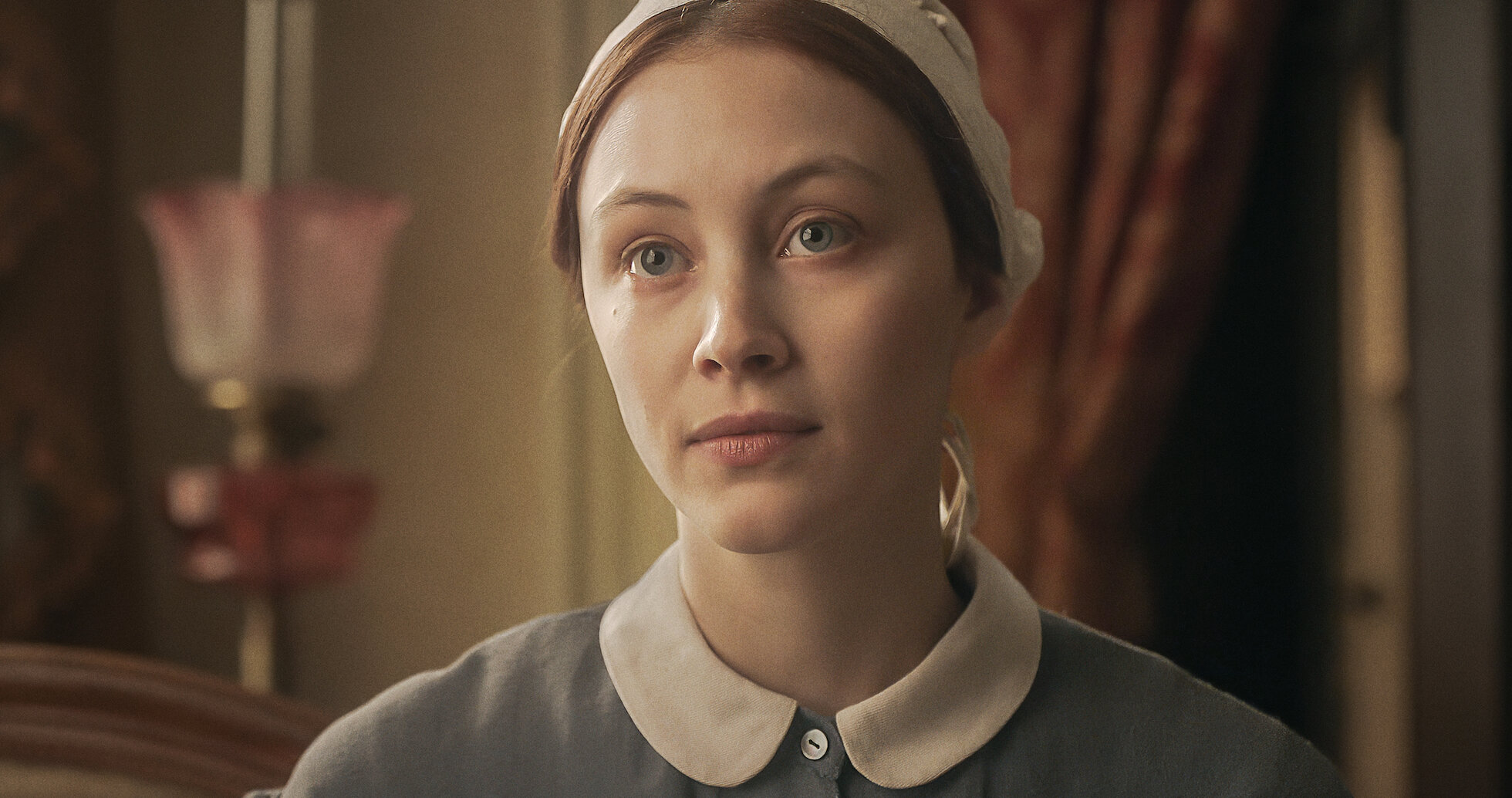She told them her story. What they heard was their own reflection
Alias Grace (2017), adapted from Margaret Atwood’s chilling novel and based on real 19th-century events, is a quiet psychological hurricane disguised as a period drama. Set in Canada during the 1840s, this six-part miniseries tells the story of Grace Marks—a young Irish servant convicted of murder—through a fractured lens of memory, manipulation, and mystery. It is not a whodunit, but rather a “who is she?”, pulling viewers deeper into Grace’s mind with every shifting story she tells.
Sarah Gadon stars as Grace, and her performance is a revelation. With a face that can switch from innocence to threat in a blink, she plays Grace as a woman shaped by trauma and survival—neither fully reliable nor fully deceptive. When a young doctor, Simon Jordan (Edward Holcroft), arrives to interview her in hopes of securing a pardon, Grace recounts her past, piece by piece. But is she confessing, performing, or simply surviving again?

The storytelling structure is a slow, deliberate unraveling. Flashbacks interlace with Grace’s calm narration, revealing a life scarred by poverty, abuse, and isolation. The viewer becomes a witness to her world—a servant in oppressive households, a friend to the unstable Mary Whitney, and eventually, a figure at the heart of a brutal double murder. But the more we learn, the less certain we become. Is Grace a calculating killer or a victim of a cruel system?
Director Mary Harron (American Psycho) crafts a chillingly beautiful atmosphere: embroidery and blood, whispers and screams. The visual palette is muted, but the emotional texture is anything but. Every scene simmers with tension, particularly between Grace and her male observers—men who believe they are decoding her, while often being quietly unraveled themselves.

What makes Alias Grace truly powerful is its refusal to answer the central question. It doesn’t seek to prove Grace’s innocence or guilt, but instead explores how society projects its own desires, fears, and judgments onto women—especially poor, clever, and quietly defiant ones. This is not a story about crime. It’s a story about power: who has it, who pretends to, and who pays the price when the truth refuses to stay simple.


-1755500589-q80.webp)
